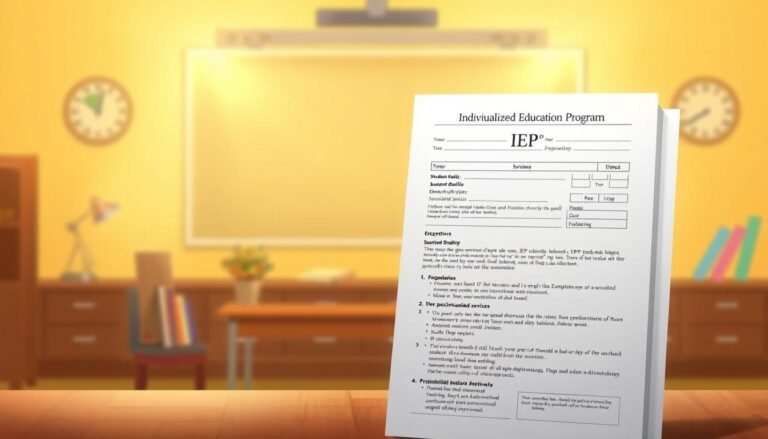
Stress Less: Embrace These Proven Natural Methods for a Balanced Life
Introduction
In today’s fast-paced world, stress seems to be an inevitable part of life. Whether it’s from work, relationships, or personal challenges, the weight of daily stressors can feel overwhelming. The good news is that you can take control of your life and cultivate a calmer, more balanced existence by embracing natural methods to manage stress. In this article, we will explore how to stress less and discover practical strategies to help you lead a fulfilling, harmonious life.
Understanding Stress: What Is It?
Stress is a natural response of the body to perceived threats, challenges, or changes. Physiologically, it triggers a cascade of hormonal reactions, particularly involving adrenaline and cortisol. While a small amount of stress can be beneficial, chronic stress can lead to severe health problems, including anxiety, depression, heart disease, and obesity.
Case Study: The Impact of Chronic Stress
Consider Sarah, a 35-year-old marketing manager, who epitomized the struggle with chronic stress. Working long hours, juggling family duties, and facing financial pressures, Sarah often found herself overwhelmed. After she embraced natural methods to reduce her stress levels, including mindfulness and yoga, she noticed significant improvements not only in her mental health but also in her work performance.
This transformation underscores the importance of addressing stress proactively before it becomes debilitating.
Natural Methods for Managing Stress
1. Mindfulness and Meditation
The Power of Presence
Mindfulness involves focusing on the present moment without judgment. It encourages acceptance and self-awareness, which helps dissipate stress.
Techniques:
- Guided Meditation: Use apps like Headspace or Calm.
- Breathing Exercises: Try the 4-7-8 technique (inhale for 4 seconds, hold for 7, exhale for 8).
Benefits:
A 2020 study published in the Journal of Clinical Psychology found that participants who practiced mindfulness meditation reported decreased stress levels and improved emotional well-being.
2. Physical Activity
Move to Reduce Stress
Physical activity releases endorphins, known as "feel-good" hormones. Regular exercise can serve as a powerful antidote to stress.
Activities to Try:
- Walking or Jogging: Aim for at least 30 minutes daily.
- Yoga or Pilates: Both integrate physical activity with mindfulness.
Case Study: Exercise and Mental Health
John, a 28-year-old accountant, experienced significant stress from his demanding job. He committed to exercising five times a week and found that his anxiety levels dropped dramatically, resulting in better focus and productivity.
3. Nutrition and Hydration
Fueling Your Body Right
A balanced diet can play an important role in managing stress. Nutrients can impact hormone levels, so what you eat matters.
Essential Nutrients Include:
- Omega-3 Fatty Acids: Found in fish and flaxseeds.
- Antioxidant-rich Foods: Berries and dark chocolate help counteract oxidative stress.
Stay Hydrated
Dehydration can exacerbate feelings of anxiety. Make a conscious effort to drink enough water throughout the day.
4. Sleep Hygiene
Prioritize Quality Sleep
Quality sleep is often overlooked but is crucial for stress management. Sleep deprivation can lead to irritability and a decreased ability to handle stress.
Tips for Better Sleep:
- Create a bedtime routine.
- Limit screen time before bed.
The Science of Sleep
Research indicates that individuals who get 7-9 hours of sleep are more resilient to stress than those who sleep less. A study in the Sleep Research Society Journal supports this claim, showing a direct link between quality sleep and stress reduction.
5. Nature and Outdoor Activities
Reconnect with Nature
Spending time outdoors can significantly reduce stress levels. Nature has a calming effect, and even short walks in a park can boost mood and mental well-being.
A Natural Prescription
Studies have demonstrated that even just a 20-minute walk in nature can lower cortisol levels, contributing to your quest to stress less.
6. Creative Outlets
Express Yourself
Creativity can be a powerful outlet for stress. Engage in activities like painting, writing, or playing music to channel your feelings constructively.
Case Study: The Healing Power of Art
Emily, a schoolteacher, turned to painting as an emotional outlet during overwhelming periods in her career. Her newfound hobby not only helped her decompress but also provided a fresh perspective, proving that creativity can be a significant stress reliever.
7. Social Connections
The Importance of Support
Strong relationships can serve as a buffer against stress. Sharing your feelings with friends or family can provide emotional support and reduce feelings of isolation.
Engaging with Community
Consider volunteer opportunities or social clubs to expand your network. These connections can play a vital role in maintaining emotional balance.
Creating a Balanced Life
To stress less and embrace a balanced life, it’s vital to integrate these natural methods into your daily routine. Balancing work and personal life, prioritizing self-care, and remaining adaptable in facing challenges are key components of living a life that feels manageable and fulfilling.
Table: Natural Stress-Reduction Techniques
| Technique | Description | Benefits |
|---|---|---|
| Mindfulness | Present-moment awareness through meditation | Reduced anxiety and improved focus |
| Physical Activity | Regular exercise promoting endorphin release | Enhanced mood and lower stress levels |
| Nutrition | Balanced diet rich in vitamins and minerals | Improved mental clarity and energy |
| Sleep Hygiene | Quality sleep through healthy routines | Increased resilience and better emotional health |
| Nature | Outdoor activities for mental refreshment | Lower cortisol levels and improved mood |
| Creative Outlets | Engaging in artistic activities for emotional expression | Enhanced problem-solving skills |
| Social Connections | Building relationships for emotional support | Decreased feelings of alienation and stress |
Conclusion
Embracing natural methods to stress less is about reestablishing balance in your life. Each technique we’ve discussed, from mindfulness and physical activity to nurturing social connections and indulging in creative pursuits, can contribute to a more harmonious existence.
Start small, incorporate these techniques gradually, and make self-care a priority. Remember, it’s crucial to choose approaches that resonate with you personally. This journey toward a balanced life takes time and perseverance, but the rewards are boundless. Begin today—your future self will thank you.
FAQs
1. How long does it take to see results from these natural methods?
Results can vary, but many people start to notice improvements in their stress levels within two to four weeks of consistent practice.
2. Can I combine these methods for better results?
Absolutely! Combining several techniques often leads to more significant outcomes. For instance, practicing mindfulness alongside regular exercise can enhance their individual benefits.
3. Is it necessary to see a professional for stress management?
While many people find success with self-help methods, consulting a mental health professional can provide personalized strategies, especially if stress becomes overwhelming.
4. How can I maintain long-term stress management?
Building a supportive routine that includes stress-reducing activities is key. Regularly assess your stress levels and adapt your methods as necessary.
5. Are there any specific diets that help with stress?
While no specific diet is universally effective, a balanced diet rich in whole foods, omega-3 fatty acids, and antioxidant-rich fruits can support mental health and help manage stress effectively.
By incorporating these insights into your daily routine, you will be well on your way to a balanced life that celebrates peace, joy, and fulfillment.















